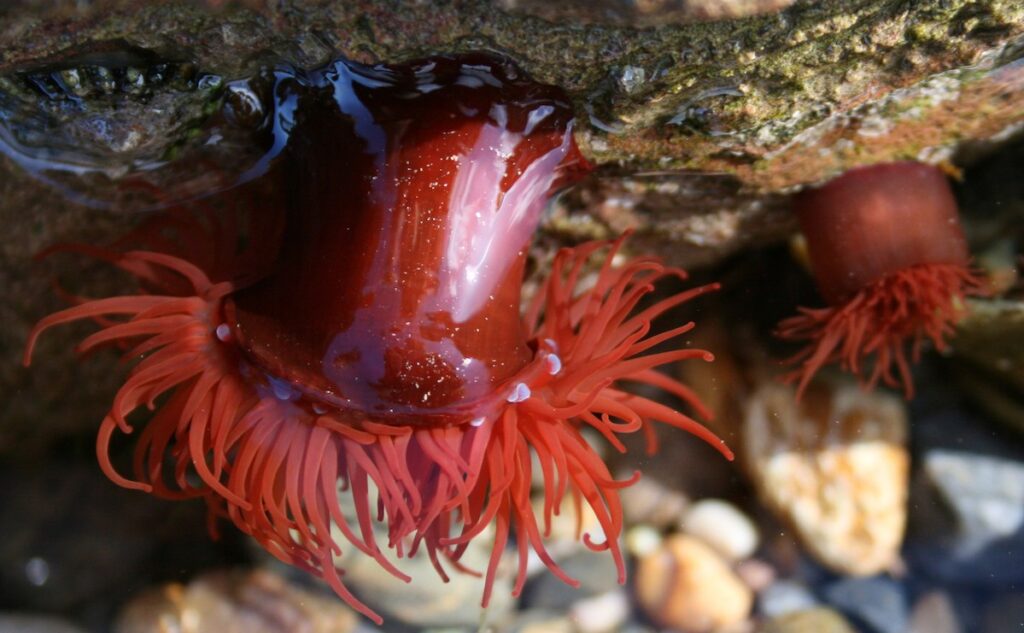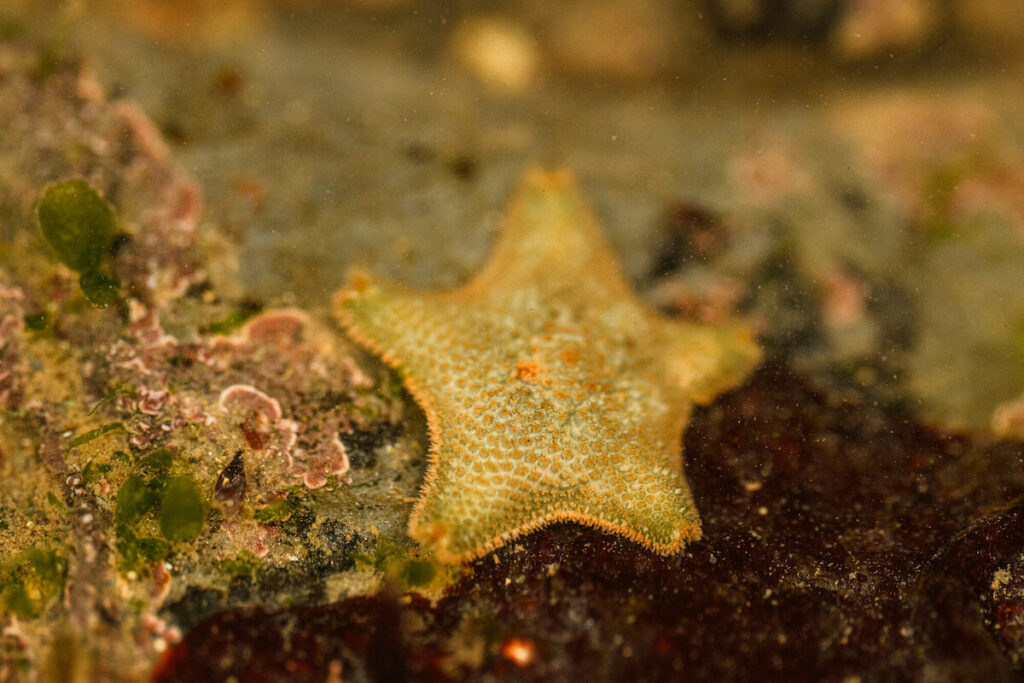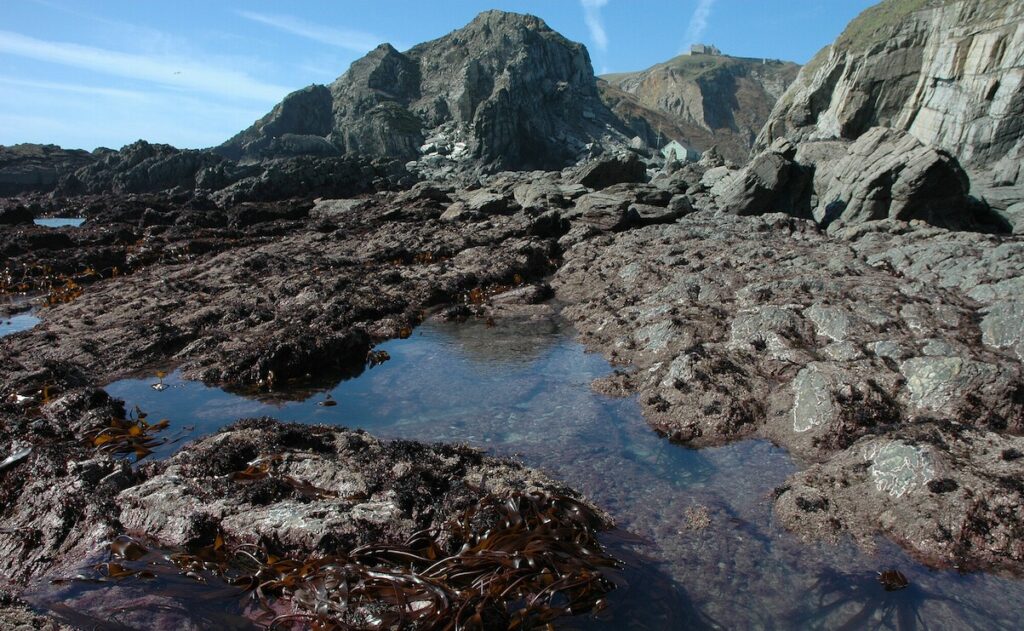Our UK coastline is under threat, and now the Marine Biological Association (MBA) is calling on ocean lovers of all ages to take part in the Big Rock Pool Challenge: National BioBlitz 2025, a nationwide citizen science effort to monitor the health of the UK’s coastline and track the spread of invasive (non-native) species.
Since the 1960s, new non-native marine species have continued to arrive on UK shores, with over 20 invasive species now established – and there is growing concern about further introductions in the years ahead.
Members of the public are invited to take part in exploring their local rock pools to collect information on the species living in and around our rocky shore from 17 to 25 May and beyond, following UK Invasive Species Week. If you spot any marine life you can submit your sightings via the iNaturalist app. By having fun exploring the many marine creatures on our aquatic doorstep you’ll also be helping to build a crucially important scientific dataset which will be used to protect our native marine biodiversity.

Beadlet anemone © Marine Biological Association
Delivered in partnership with The Rock Pool Project and supported by The ScottishPower Foundation and The National Lottery Heritage Fund, this May’s BioBlitz gives the public the opportunity to become citizen scientists, collecting real data that fuels research, conservation policy, and global marine biodiversity monitoring.
Rock pools are much more than fascinating places to explore — they are unique frontline habitats where environmental changes can be seen most clearly. Sadly, these unique micro-ecosystems are increasingly being impacted by climate change, pollution, and the arrival of invasive species such as Wireweed, Leathery Sea Squirt, and Slipper Limpets.
By documenting marine species during the BioBlitz, participants provide essential evidence that helps scientists to understand changes in biodiversity and the spread of invasive organisms. This data doesn’t get collected and then left alone — it is actively used by DASSH (the Marine Data Archive Centre, based at the MBA in Plymouth), which then shares it with UK, European, and global marine databases, including the Ocean Biodiversity Information System (OBIS).

Cushion Star © Marine Biological Association
“The data captured and shared by the Big Rock Pool Challenge increases the available evidence to support our stewardship of the marine environment. Every species record collected by the public helps to shape real-world environmental policy and conservation management — it’s citizen science in action.” Dan Lear, Head of Data and Information at the MBA.

© Keith Hiscock
As the national archive for marine biodiversity data, the MBA, through DASSH, ensures that your Bioblitz observations are scientifically validated, securely stored, and made accessible to researchers, policymakers, and conservationists. This data contributes to understanding long-term trends in ocean health, species migration, and the impact of human activities on coastal ecosystems.
Through this initiative, citizen scientists are directly supporting marine biology research, helping to track the shifting boundaries of native and invasive species, and strengthening the resilience of marine life in the UK.
“The UK’s rock pools are brimming with fascinating life that’s often overlooked,” said Dr Ben Holt, CEO of The Rock Pool Project. “By taking part, you’ll not only connect with nature, but also help build one of the most detailed pictures ever of what’s really living in our coastal waters.”
How to take part in the Big Rock Pool Challenge
Getting involved is simple — whether you’re a beginner or a seasoned naturalist, you can take part:
- Find a rock pool – Visit your local coastline and explore the rocky shore at low tide.
- Download the iNaturalist App – Sign up and join the project “BRPC National BioBlitz 2025”.
- Record your discoveries – Log the species you spot with clear photos and notes.
- Compete and learn – Take part in friendly competitions, climb the leaderboard, and discover more about your local marine life.
Resources and guides are available to help to identify common species, including key invasive ones to look out for. Download our guide to non-native species.[1]
Join us – Become a marine citizen scientist today
The Marine Biological Association has championed marine science since 1884. As a global leader in ocean research, and home to DASSH and the UK node of OBIS, the MBA is proud to support public initiatives that connect people with marine biology and generate the data needed to protect the ocean for future generations.
To learn more or take part, visit: therockpoolproject.co.uk.
For more on the MBA’s work and how to support marine science through becoming a Member, visit mba.ac.uk.
Join Dr Nova Mieszkowska, MBA Senior Research Fellow and principal investigator for the Marine Biodiversity & Climate Change Project (MarClim) on Tuesday 20 May for the webinar: How Invasive Species Are Reshaping Our Shores. Nova will cover how, where, when, and why do invasive species colonise our intertidal habitats, and what are the results for native species? Book your free tickets here.
The Big Rock Pool Challenge is funded by The ScottishPower Foundation and The National Lottery Heritage Fund, with delivery by The Rock Pool Project in partnership with the Marine Biological Association.
[1] Bishop, JDD and Wood, CA 2020 Identification guide for selected marine non-native species. Plymouth, Marine Biological Association.